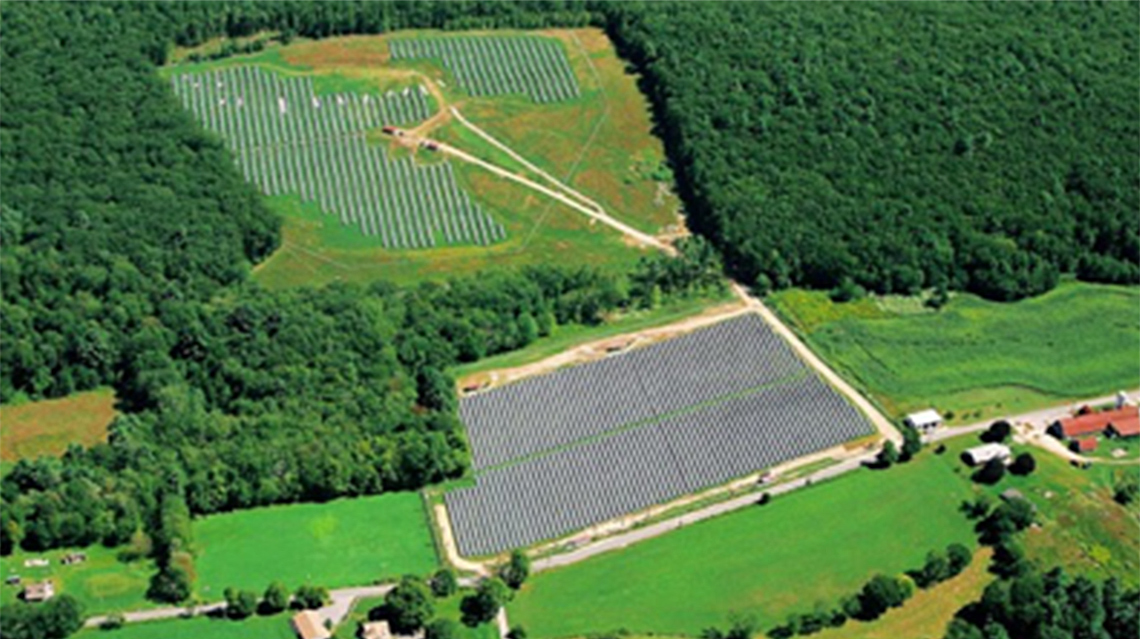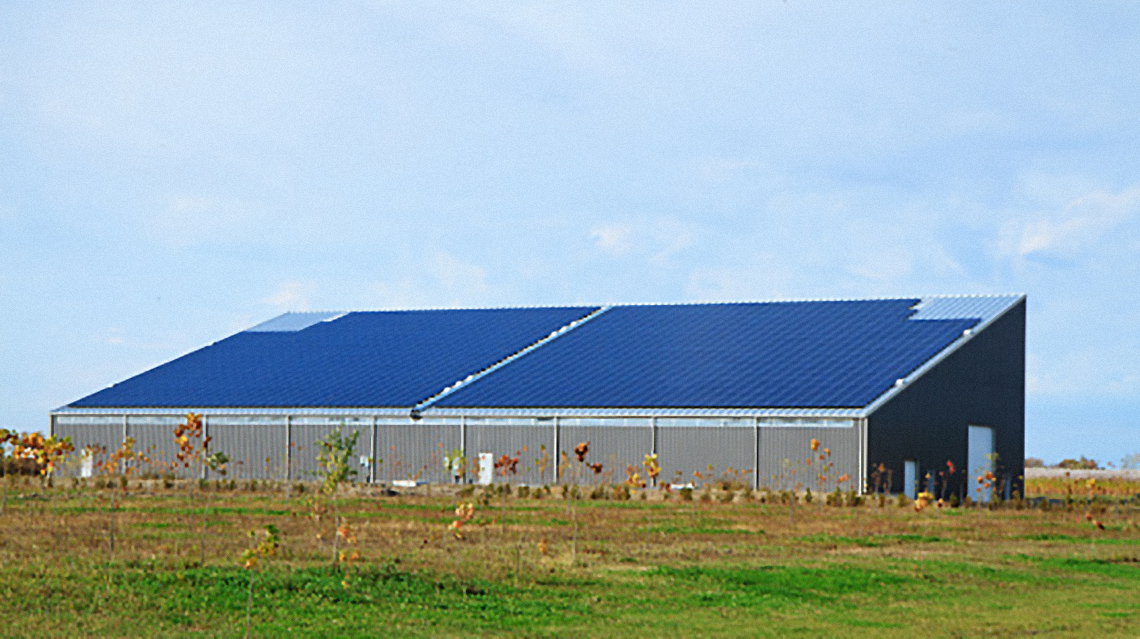Community Solar
- Homeowners
- Local businesses
- Hospitals
- Government offices
- Fire and Police Stations
- School Systems
How does it work?
Typically, subscribers are compensated for their share of the Community Solar Garden system’s output via a credit on their utility bill. The credit will be made on a dollar per kilowatt-hour produced ($/kWh). To participate in a community solar project, a potential subscriber must purchase a subscription. There are two primary subscription models: pay upfront and pay-as-you-go. In a pay upfront model a subscriber purchases a subscription for a one-time fee that covers the life of the agreement. The subscriber reaps the subscription benefits (utility bill credits for energy produced) for the length of their subscription. In a pay-as-you-go model a subscriber pays in installments, which are often based on the Community Solar Garden’s production attributed to their subscription. Whichever route you choose, you will not actually own solar panels, you will own a subscription for the solar energy system’s production.
Can community solar protect against future utility price hikes?
Yes. Historically, electricity rates from fossil fuels have risen almost every year as commodity prices fluctuate from year-to-year. However, because solar energy has a fixed upfront cost with minimal ongoing costs, the cost of energy from a community garden can be locked in for the duration of your subscription. So you’ll have peace of mind, knowing that you are not susceptible to the cost of energy hikes.
Frequently asked questions
Does the utility to Community Power Group need to do anything at my home?
No, the benefits of community solar show up on your bill as a credit. There is no need to to change any wires or have any solar directly installed at your home or business.
What happens if I move?
With the Community Power Group, if you moving within the same or an adjacent county of your utility service area, we will help you transfer the energy to your new address. For businesses with multiple premises, you may transfer your credits to a new electric meter. You can also sell your energy subscription with your home or business or sell your energy to any other customer in the same county of your utility service area. We can even help you give the gift of clean, renewable solar energy to a friend or loved one, or donate it to a nonprofit.
What happens if the Community Power Group goes out of business?
The Community Power Group set up a warranty-reserve fund to ensure the long-term operation and maintenance of the solar garden and to guarantee the solar facility will always be cared for and insured.
How soon will I see credits start hitting my electric bill?
Once the community garden is operational, you will start to see credits on your utility bill during the billing cycle the month after you enroll.
Commercial Solar
Ground Mounted Solutions – Typically between 1 and 100 megawatts

Roof Mounted Solutions – Typically between 500 kilowatts and 2 megawatts

Our Process
At Community Power Group we leverage our extensive industry expertise to develop sustainable energy using solar PV and hydro technologies. We approach each project as a partnership and strive to keep all participants fully informed throughout the process to create win-win situations.
Project Development
Community Power Group consultants are eager to evaluate any project development opportunity. During our evaluation, we provide real-time feedback on the advantages and disadvantages of a project. If the project is deemed economically viable, we guide the interested parties through a three-step process outlined below. At each step the vested parties are included in the process and we thoroughly describe and explain the economic and environmental benefits as well as the drawbacks of all aspects of the project.
Site Evaluation and Project Documentation
To determine if a development project is right for a site or building, we perform a comprehensive analysis that includes:
- An assessment of the site conditions and potential for development;
- An evaluation of issues likely to be encountered;
- The economic and environmental repercussions of the project, taking into account the following: all relevant federal and state regulations, federal and state tax credits and other subsidies, potential financing implications, and the environmental impacts to the location.
Design Engineering and Implementation
After documenting an agreement as to the development of the project, our team works on the designs, construction plans and schedules. We will not begin development of the project unless you are 100% satisfied with our design and construction plans.
Monitor and Maintain
Our primary goals for project monitoring and maintenance are to maximize the sustainable and economic benefits of the project.
Project Acquisitions
Community Power Group is actively seeking acquisition opportunities for solar PV and hydro energy projects that are operational or in the development stage.

